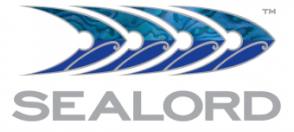Financial highlights
This year’s Financial Statements can be downloaded as a separate PDF below.
Sales by species
Kōura
$9.2 million
Tio
$10.8 million
Pāua Kahurangi
$2.7 million
Pāua Tūwā me te Kai Ora
$30.8 million
Ika
$79.3 million
Dividend Paid
Total Revenue
Profit Contribution from Sealord
Profit for the Year
Operating Cash Flow
Bank Debt (Net of Cash)
Governance
Board of Directors—Te Ohu Tumu

Jamie Tuuta
Director
Ngāti Mutunga, Ngāti Tama, Ngāti Maru, Te Ati Awa, Taranaki Tuturu
See full bio
Mavis Mullins
Director
Rangitāne, Te Āti Haunui-a-Pāpārangi, Ngāti Ranginui, Ngāti Hainamana
See full bioExecutive Team—Ngā āpiha whakahaere

David Cossey
Group Portfolio Manager, Projects and ICT
Kaiwhakahaere Haumitanga, Hangarau, Hinonga
See full bio
Dean Pennell
General Manager Sales & Innovation
Tumu Atamai, Whakatairanga, Hokonga o te Kāhui
Ngāi te Rangi and Ngāti Kahu o Tauranga

Fiona Wikaira
General Manager Aquaculture
Kaiwhakahaere Mahinga Mātaitai, Mahinga Kai
Ngāpuhi

Karen Funnell
Group Safety and Well-being Manager
Kaiwhakahaere Hauora, Haumarutanga o te Kāhui
See full bio
Katrina Thomson
Group People and Culture Manager
Kaiwhakahaere Take Tangata o te Kāhui
Te Aitanga-a-Hauiti and Te Aitanga-a-Māhaki

Michelle Cherrington
Group Communications and Sustainability Manager
Kaiwhakahaere Whakapānga, Toitū-Oranga o te Kāhui
Ngāti Awa, Te Whānau-ā-Apanui
Corporate Governance
Board Composition and Performance
Te Ohu Kai Moana Trustee Limited is the controlling shareholder of Moana New Zealand and is responsible for appointments to the Board. The Board has statutory responsibility for the affairs and activities of Moana New Zealand. Directors are required to monitor, direct, and control the activities of Moana New Zealand and to ensure a high standard of corporate governance is exercised in the interests of the Company and shareholders.
The Board considers the annual business plan prior to the begining of the financial year in order to determine the annual targets. The Board also sets the direction of Moana New Zealand by agreeing objectives and approving strategies. It is the role of the Chief Executive Officer and senior management to develop the strategy and manage the day-today operations.
Code of Corporate Governance
As required by our constitution the Board has implemented a Code of Corporate Governance (incorporating a Code of Ethics). This code reflects accepted best practice among companies listed on the New Zealand Stock Exchange.
The guiding principles upon which the Company Governance Code is based, includes integrity and accountability. A clear understanding of moral and ethical responsibilities and strict observance of these obligations will assist Moana New Zealand in gaining support from Iwi and other stakeholders for the Company’s strategies.
The following is a summary of the sections from the Moana New Zealand Corporate Governance Code:
Board Composition and Performance
The Board represents a balance of independence, skills, knowledge, experience, and perspectives ensuring Moana New Zealand works effectively.
During the course of the year the Board has guided the direction of Moana New Zealand and provided oversight to management at a strategic level.
Ethical Standards
Directors have demonstrated and fostered ethical standards as required by the Code and acted honestly and in good faith.
Relationships with Iwi
Directors have ensured that Moana New Zealand uses its best endeavours to work co-operatively with Iwi, consistent with the requirement of the Māori Fisheries Act to manage Moana New Zealand assets in a commercial manner.
Stakeholder Interests
The Board respects the interests of all stakeholders within the context of Moana New Zealand’s special type of ownership and its fundamental purpose.
Reporting and Disclosure
Accountability is a principal incentive for good corporate governance and the Board demands integrity both in financial reporting and in the timeliness and level of disclosure.
Auditor
The Board ensures the integrity, objectivity and independence of the external audit process.
Risk Management
The Board annually reviews that Moana New Zealand has appropriate policies and processes that identify and manage all potential and relevant risks.
Remuneration
Remuneration of executives is transparent, fair, and reasonable.
Board Committees
The Board uses committees in key areas where this enhances Moana New Zealand’s overall effectiveness while retaining full Board responsibility for all governance decisions.
Four Committees to assist and enhance the Board’s stewardship in three key areas – financial integrity and business risk, Health and Safety and executive remuneration.
The Committees make recommendations to the full Board on all matters requiring a decision.
Health and Safety Committee
The Health and Safety Committee has written terms of reference, and its activities are reviewed by the full Board.
The Health and Safety Committee assists the Board in health and safety policy and planning, delivering an effective system, and monitoring and reviewing the performance.
The Health and Safety Committee met on four occasions during the year. The members were: The members were: Rachel Taulelei (Chair), Rangimarie Hunia, Mavis Mullins, Greg Summerton and Jamie Tuuta.
Audit and Risk Committee
Written terms of reference guide the activities of the Audit and Risk Committee and these activities are reported to and reviewed by the full Board. Directors who are not members of the Audit and Risk Committee receive all Committee papers and may attend meetings.
The Audit and Risk Committee assists the Board in financial reporting compliance and meeting its responsibilities under the Financial Reporting Act 2013 and the Companies Act 1993. The Audit and Risk Committee also reviews the work and findings of the external auditor, Ernst and Young.
The Auditor has direct access, via the Chair, to the Committee and Ernst and Young attend the Audit and Risk Committee meetings. Prior written approval of the Board is required before the external auditor is able to perform any non-external audit work.
This decision is based on a review of the appropriateness of engaging the external auditor for the specified non-audit work as opposed to Moana New Zealand carrying out the work in-house or through other external parties.
The Auditor did not carry out any non-audit work during the year. The Audit and Risk Committee reviews the adequacy of internal controls and insurance policies. Moana New Zealand has an ongoing internal audit programme to assist in ensuring performance is robust.
A good cross section of commercial, accounting and finance experience is provided by Directors of the Audit and Risk Committee, who met on four occasions during the year.
The members were: Tony Hannon (Chair), Glenn Hawkins (became Chair after Tony Hannon retired from the Board), Dylan Lawrence, Rachel Taulelei and Jamie Tuuta.
People and Culture Committee
The People and Culture Committee has written terms of reference and its activities are reviewed by the full Board.
The People and Culture Committee is responsible for setting and reviewing the remuneration of the CEO and executive management as well as overseeing remuneration policies and practices at all levels of management.
The People and Culture Committee met four times during the year. The members were:
Mavis Mullins (Chair), Tony Hannon, Rachel Taulelei, Dylan Lawrence and Paki Rawiri.
Sustainability Committee
The Sustainability Committee has written terms of reference, and its activities are reviewed by the full Board. The objective of the Committee is to assist the Board in fulfilling its oversight responsibilities in relation to Moana’s objectives, policies and practices pertaining to sustainability.
The members were: Dylan Lawrence (Chair), Rachel Taulelei, Rangimarie Hunia, Linda Grave, Greg Summerton, and Mavis Mullins.
Table of Meeting Attendance for Directors
Attendance records of Board and Committee meetings for the year ended 30 September 2023.
| Safety & Wellbeing Committee (4) |
Audit and Risk Committee (4) |
People & Culture Committee (4) |
Sustainability Committee (5) |
|||||||
| Rachel (C) | Greg | Tony (C) | Rachel | Mavis (C) | Tony | Dylan (C) 04/02/23 | Rangimarie | |||
| Mavis | Jamie | Glenn (C) 01/12/22 | Dylan | Rachel | Dylan | Rachel | Mavis | |||
| Moana Board Meetings | Rangimarie | Jamie | Paki | Greg | ||||||
| Directors | Attended | Required | Attended | Required | Attended | Required | Attended | Required | Attended | Required |
| Tony Hannon Retired 30/11/22 |
3 | 3 | - | - | 1 | 1 | 1 | 1 | - | - |
| Greg Summerton Retired 14/07/23 |
6 | 7 | 2 | 3 | - | - | 1 | - | 1 | 1 |
| Rachel Taulelei Appointed 01/12/21 |
9 | 9 | 5 | 5 | 5 | 5 | 3 | 3 | 3 | 3 |
| Mavis Mullins Appointed 01/08/20 |
6 | 9 | 4 | 5 | - | - | 2 | 3 | 2 | 3 |
| Glenn Hawkins Appointed 01/10/20 |
9 | 9 | 1 | - | 5 | 5 | 1 | - | 1 | - |
| Rangimarie Hunia Appointed 01/12/21 |
9 | 9 | 1 | 2 | - | - | - | - | 2 | 3 |
| Dylan Lawrence Appointed 10/06/22 |
9 | 9 | 1 | - | 5 | 5 | 3 | 3 | 3 | 3 |
| Jamie Tuuta Appointed 01/07/22 |
9 | 9 | 5 | 3 | 5 | 5 | 2 | - | 1 | - |
| Paki Rawiri Appointed 01/12/22 |
6 | 6 | - | - | - | - | - | 2 | 1 | - |
| Associate Directors | ||||||||||
| Ngarimu Parata Appointed 20/04/22 |
9 | 9 | 1 | - | - | - | - | - | 1 | - |
| Linda Grave Appointed 20/04/22 |
8 | 9 | 1 | - | - | - | - | - | 3 | - |
Note: During the 2023 financial year, there were seven (7) formal Board meetings and two (2) strategy wānanga.
Quota management system terminology
Quota Management System (QMS)
The QMS was introduced in 1986 to manage and conserve New Zealand’s commercial fisheries. It is based on the concept of creating property rights in Individual Transferable Quota (ITQ) and ensuring sustainability by setting an annual limit on total commercial catches from each fish stock.
Individual Transferable Quota (ITQ)
ITQ was allocated for all main inshore and deepwater fisheries, and today 98 species, or groups of species, are managed as 642 separate fish stocks under the QMS. The quota allocated for each fish stock is in perpetuity, and is measured in a fixed number of quota shares. Quota owners are able to buy, sell and lease their quota or catch rights, and to choose the method and the time of year they harvest their catches within these limits.
Annual Catch Entitlement (ACE)
At the beginning of each fishing year, quota owners are entitled to ACE generated from their quota shares. The ACE gives a right to harvest a specified quantity of a fish stock in an area for one year. ACE varies from year to year depending on the Total Allowable Commercial Catch (TACC) level set by the Minister of Primary Industries.
Total Allowable Catch (TAC)
The TAC is the total regulated catch from a fish stock in a given time period, usually a year, and is allocated to commercial, customary and recreational fishers. This catch limit is set by the Minister of Primary Industries after consultation with fishers, and is generally set at the maximum sustainable yield.
Total Allowable Commercial Catch (TACC)
The proportion of the TAC allocated to commercial fishers is known as the TACC.
Maximum Sustainable Yield (MSY)
MSY is the largest average catch or yield that can continuously be taken from a fish stock each year without depleting that stock.
Deemed Values
Deemed values are civil payments made to the Crown as a defence for landing catch of QMS species for which the individual fisher holds no ACE. They are designed to act as an incentive for fishers to obtain ACE which matches their catch for each fishing year.
Corporate directory
Tari Rēhita
Registered Office
1-3 Bell Avenue
Mt Wellington
Auckland 1060
Tau Pōti
Postal Address
PO Box 445
Auckland 1140
Tel: +64 9 302 1520
Kaitātari Kaute
Auditor
Ernst and Young
Hunga Whare Moni
Bankers
BNZ
Westpac New Zealand Limited
Kaiwhakamāori
Translator
Maika Te Amo – Tapuika
Pāua Kahurangi
Blue Abalone
Station Road East
Ruakākā 0116
Tel: +64 9 433 0220
Pāua Tūwā
Wild Abalone
15 Makomako Road
Palmerston North 4414
Tel: +64 6 357 1009
Ika
Fin Fish
1-3 Bell Avenue
Mt Wellington
Auckland 1060
Tel: +64 9 302 1520
269 South Highway
Whitianga 3591
Tel: +64 7 866 0547
17-21 Lorne Street
Wellington 6011
Tel: +64 4 801 0514
Wharf Road
Waitangi
Chatham Islands
Tel: +64 3 305 0076
Tio
Oysters
266 Roscommon Road
Wiri
Auckand 2104
Tel: +64 9 268 4637
1600 Long Bay Road
Coromandel 3506
Tel: +64 7 866 8564
139 Glen Road
Glenduan,
Nelson 7071
Tel: +64 3 545 0127
Whakangaonga
Investments
Sealord Group Limited
149 Vickerman Street
Nelson 7010
Tel: +64 3 548 3069
www.sealord.co.nz

Visit last years report
All previous reports can be found at moana.co.nz












